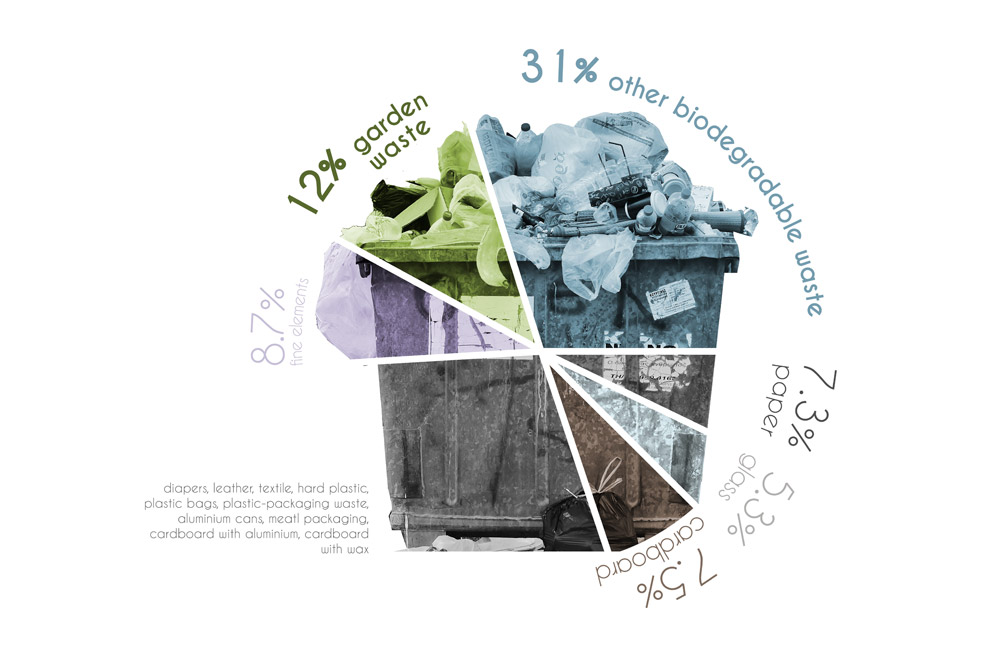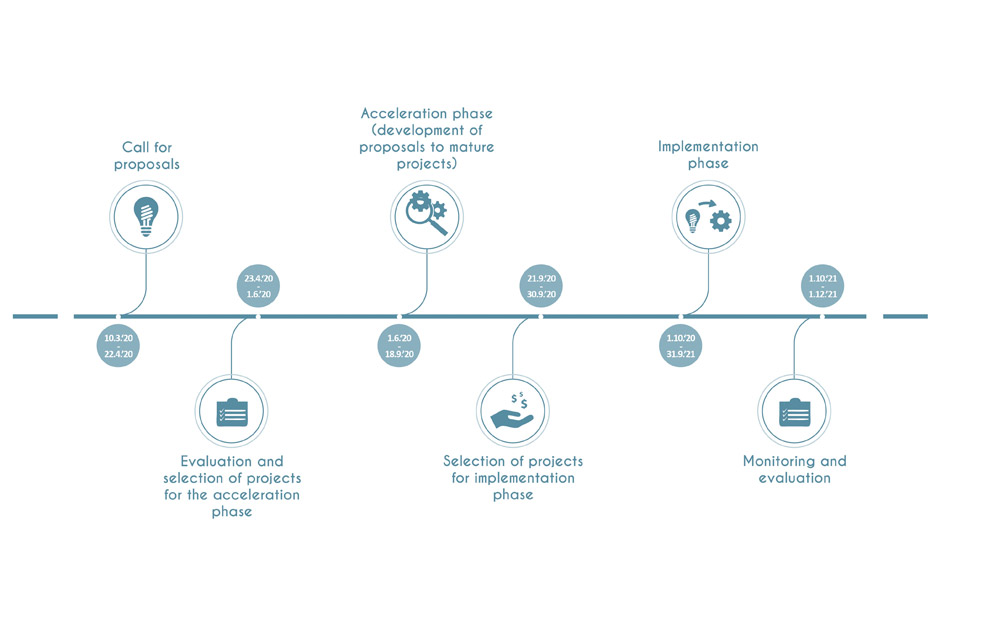Climate Smart Bio – Waste Management Challenge
WHAT
Climate Smart Bio – Waste Management Challenge promotes innovative projects and business solutions for climate-smart management of biodegradable waste (bio-waste).
Project has two sub-challenges:
- Food and kitchen waste (from households, restaurants, caterers, retail premises and comparable waste from food processing plants – municipal, commercial and industrial waste)
- Green waste from parks and gardens (municipal waste).

WHY
Often those that can offer creative, innovative and cost-effective solutions, such as companies, innovators or scientific/research community, do not have an opportunity to meet with the potential beneficiaries, such as cities and municipalities. The project will bring to the market innovative technical solutions and business models that contribute to reduction, reuse and recycling of bio-waste in the Republic of Serbia. Such solutions will, in turn, divert bio-waste from landfilling and reduce related greenhouse gasses emissions. Improper waste disposal has a vast environmental impact that leads to pollution of surface and groundwaters, soil and air, caused by uncontrolled burning of dumpsites and waste in containers, contributing also to GHG emissions and land degradation. The project will aim at minimizing the quantities of biowaste disposed on landfills which will also contribute to the extension of the landfills’ lifetime. The project offers the possibility for stakeholders to interreact, cooperate, learn & earn a profit on innovation, while also leading the way towards national climate & waste related targets.
At the same time, the project will support implementation of the Agenda 2030, in particular the SDG 13 on climate action and the SDG 12 on sustainable consumption and production, with particular focus on reducing waste generation through prevention, reduction, recycling and reuse. In parallel, the project further supports Serbia’s EU accession process by further accelerating the implementation of policies on improved bio-waste management, in line with the EU Acquis, as well as in line with the EU Circular Economy Package. The project will also be complementary to other projects financed by Sweden; working on broad environmental reform in Serbia, improved environmental standards in food industry and starting-up of recycling in municipalities in Serbia.
WHEN
The project timeframe is January 2020 – December 2021.

HOW
Bio-waste is generated at large scales, it is widely available and inexpensive, representing a huge potential for the creation of new businesses by adding new values to this particular waste stream. The Bio-waste Challenge project is expected to create the market for innovative, cost-effective solutions (technologies, business models) and supporting mechanisms for effective bio-waste management. It will ensure that the most advanced, and best-value-for money solutions, receive technical assistance through the project-based Accelerator. Eventually, most advanced solutions will qualify for the financial support for the implementation. Co-financing will be based on blended finance approach and will aim at de-risking public funds, commercial borrowing and grant schemes, as appropriate.
The project will apply the Innovation Challenge approach as a flexible mechanism of identifying creative and yet applicable, best value for money solutions for specific problems identified by the challenge. The challenge call remains open for a vast number of possible solutions that can differ in the approaches, technologies, business models, stakeholders engaged etc. Besides diverting a bio-waste fraction of communal waste from landfilling, the project will boost local businesses and the economy, by practising principles of sustainable development and circular economy. Eventually, the project will accelerate the development of new circular economy markets. Besides investments into creative solutions for reduction, collection and treatment of bio-waste, the project will particularly explore preventive actions, in particular regarding the food wastes originating from households, commercial & industrial sector.
WHO
The project along with its Innovation Challenge Call is implemented by the United Nations Development Programme (UNDP), with the financial support of the Swedish International Development Agency (Sida) and in close cooperation with the Ministry of Environmental Protection (MoEP).
In addition, a vast number of stakeholders, such as public and private companies, research & scientific community and food and non-alcoholic beverage industry, will be directly involved through the Challenge call in sourcing creative solutions. In this way, the project will unlock collaboration opportunities between the Serbian companies and their strategic partners, including also cooperation with know-how partners from Sweden. This should lead to the creation of enabling environment for accelerated investments into best available bio-waste solutions
CONTACT
UNDP Serbia
ana.seke@undp.org
Bulevar Zorana Djindjica 64, 11000 Belgrade
Phone: +381 (0)11 285 65 71
